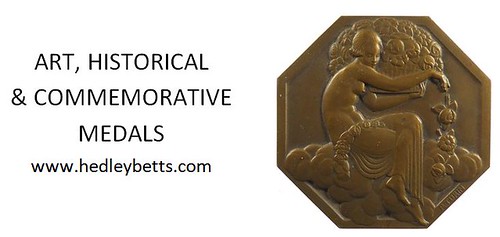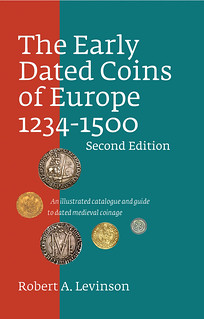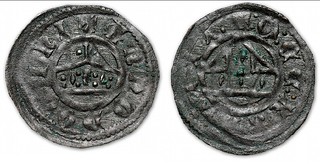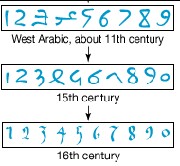
PREV ARTICLE
NEXT ARTICLE
FULL ISSUE
PREV FULL ISSUE
BOOK REVIEW: EARLY DATED COINS OF EUROPE, 2ND ED.In the December 2019 issue of The Mint Master from the Utah Numismatic Society, Doug Nyholm published this review of the Second Edition of The Early Dated Coins of Europe, 1234-1500 by Robert A. Levinson. With permission, we're republishing it here. Thanks. -Editor EARLY DATED COINS OF EUROPE 1234-1500 / 2ND EDITION
I don't collect these early dated coins although at one time I did posses a 1499 dated coin. I have however always been interested in just how early the dating of coins went. Have you ever come across that Scheckel dated 45 B.C.? That is a often heard joke regarding coins dated B.C. and of course that couldn't happen. According to Robert Levinson's book the earliest dated coin is 1234, still quite old. The dating of early coins was quite sporadic however. The book contains an 18-page introduction which made fascinating reading and was a mini-college course regarding early European coinage. The 1234 Roskilde bishopric denier from Denmark holds the honor of being the first dated coin. Interestingly the next dated coin wouldn't appear for another 138 years and carry the date 1372. The idea that coins should be dated was not widespread in Europe until the late 16 th century and didn't become widespread or somewhat universal until the early 19 th century. Many early coins were identified not by exact date but generalized as to the reign of the King or ruler depicted on the coin.
Much more information if available in this book and if your interested I suggest that you acquire a copy for yourself. It is available directly from the Coin & Currency Institute for $88.95. It is not an inexpensive book but it does have a wealth of very interesting information. It is 330 pages 8 ½ x 11 format in full color. To read the earlier E-Sylum article, see:
 Wayne Homren, Editor The Numismatic Bibliomania Society is a non-profit organization promoting numismatic literature. See our web site at coinbooks.org. To submit items for publication in The E-Sylum, write to the Editor at this address: whomren@gmail.com To subscribe go to: https://my.binhost.com/lists/listinfo/esylum All Rights Reserved. NBS Home Page Contact the NBS webmaster 
|


